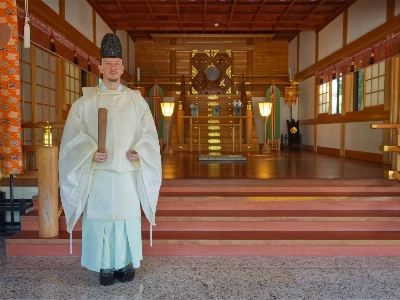OSAKA -- Matsushita Electric Industrial Co.'s announcement that it will post operating losses of 38.7 billion yen in the April-June quarter and begin restructuring shocked the Kansai business community and prompted worries about what it would mean for the region's economy.
Company officials dismiss as speculation recent reports that the Matsushita group -- of which Matsushita Electric is one of six core companies -- may post net losses as high as 100 billion yen for the fiscal year through March.
But there is a growing feeling among Kansai-based analysts that the group will have to make more changes, and that these changes will put even more people out of work.
"The entire Matsushita group faces more restructuring and will have to make some hard decisions," said Takeshi Tsuruoka, a senior economist with Sanwa Research Institute in Osaka. "How many small and midsize companies in the Kansai region that supply cellular phone or computer parts to Matsushita might suffer due to the restructuring is still unknown."
That is a major source of concern to local business and political leaders who are already trying to deal with Kansai's 6.3 percent unemployment rate. The national rate is 5 percent.
In July, Matsushita Electric announced a program to reduce its workforce, offering early retirement schemes to workers who had been with the company for at least 10 years and were under the age of 58.
"Workers will be offered a variety of options," said Teruhisa Noro, a Matsushita Electric spokesman. "Some may choose to join nonprofit organizations or nongovernmental organizations."
Matsushita Electric has not announced how many employees will be affected, and Noro refused to confirm or deny media reports that 5,000 Matsushita group employees may be cut, or about 6 percent of its total domestic workforce of 80,000 people. About 40,000 are employed in the Kansai region.
Kansai economic officials have said little in public about Matsushita's plans. But some privately acknowledge a fear that the Osaka-based group will follow other companies to Tokyo, a move that has been prevalent among firms involved in information technology, an area that Matsushita Electric -- and the Kansai region -- has been slow to enter.
"A major problem that companies who want to stay in Kansai face is the lack of an information technology infrastructure like Tokyo's," said one member of the Osaka Chamber of Commerce and Industry, speaking anonymously. "As the IT sector becomes more competitive, it wouldn't be surprising if Matsushita decided to move a large portion of the company to Tokyo."
While Matsushita denies it intends to leave Osaka, Noro notes there are several advantages to relocating at least some of the company to Tokyo.
"In addition to being a mass media center, Tokyo is also home to large numbers of financial organs and industry analysts," he said.
While the Kansai business community is worried about the economic effect of Matsushita's restructuring plans, others are worried about their impact on the local community.
Through a corporate philanthropy program, the Matsushita group gives financial and other support to numerous nongovernmental and nonprofit organizations and provides funding for cultural events.
Tomoaki Naganawa, an adviser for Matsushita Electric's corporate citizenship department, says the company puts a ceiling of 1.2 billion yen on donations to NGOs and NPOs, but notes that the company's financial condition has forced the department to review those projects.
The Kansai foreign business community is also wondering how Matsushita's restructuring program might affect regional investment. Some have expressed concerns that moving even small numbers of people to Tokyo will give potential foreign investors the impression that Kansai -- and Osaka -- are not as attractive as Tokyo.
"Matsushita is the Osaka company, and any moves to Tokyo are sure to be watched carefully by the foreign business community," said Tom Flippen, Kansai chief of the American Chamber of Commerce in Japan. "Such moves could conceivably make it more difficult to convince foreign companies to invest in the region."
While Kansai economic officials have expressed understanding that Matsushita needs to restructure, Noro also said that President Kunio Nakamura, after the three-year restructuring plan was announced last year, was asked by the Kansai Economic Federation (Kankeiren) not to move the company up to Tokyo.
"We have no plans to move the corporate headquarters to Tokyo. But we do need to adjust to the new age of service and information technology," Noro said.
Sanwa Research's Tsuruoka notes, however, that things for both Kansai and Matsushita Electric are likely to get worse before they get better. Matsushita Electric said it expects a net loss of 45 billion yen for the first half of the 2001 business year, which ends in September.
"Matsushita is not out of the woods yet. The company, and many companies in Kansai, need to tighten their belts further," he said.


















With your current subscription plan you can comment on stories. However, before writing your first comment, please create a display name in the Profile section of your subscriber account page.